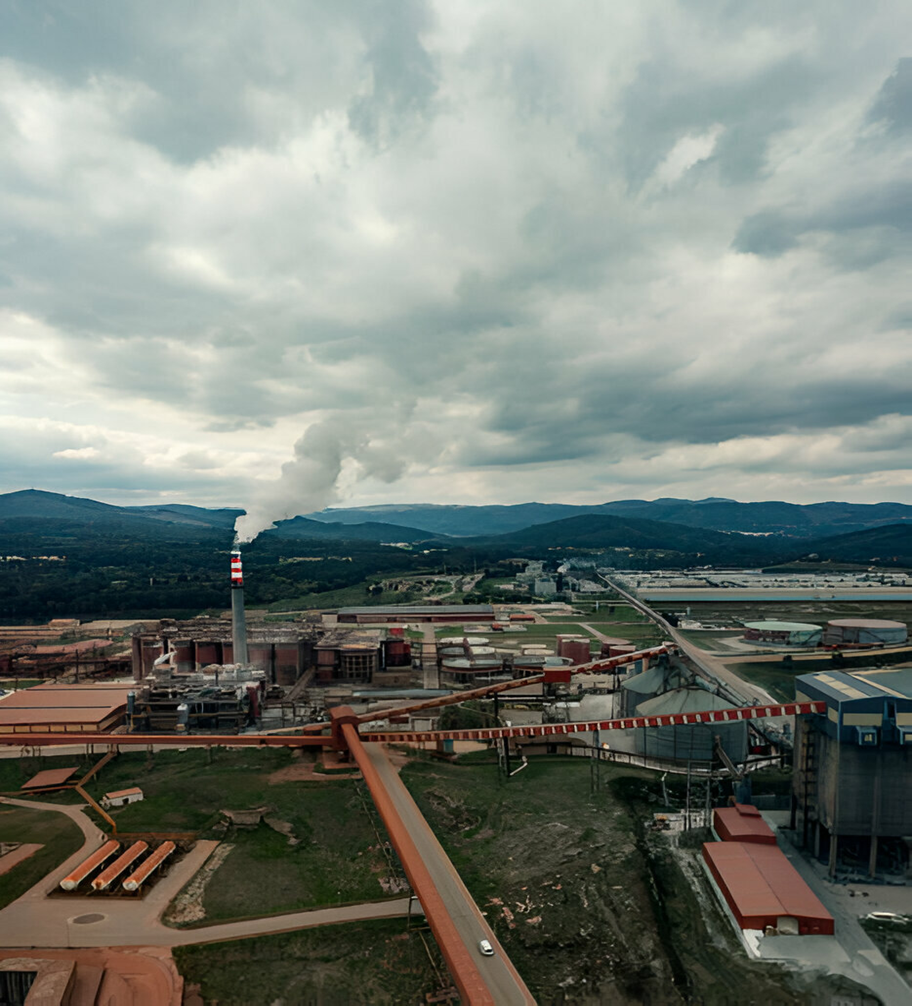Introduction
Combating climate change has gained international attention. Accredited Carbon Verifier agencies have become more important as nations and companies work to fulfill aggressive emission reduction targets. These neutral organizations are essential to maintaining the validity and openness of carbon offset initiatives, which in turn helps to shape environmental policy for 2024 and beyond.
This blog delves deeply into the realm of ACVs, examining their purpose, how they affect environmental laws, and how the carbon verification industry is changing. We will also discuss the important role that PGS EPL (PGS Energy Services Private Limited), a leading service provider, plays in this field.
What are Accredited Carbon Verifier Agencies?
Accredited Carbon Verifier agencies are independent third-party entities that assess carbon offset projects against established methodologies and standards. These projects might involve renewable energy generation, forest conservation, or improved agricultural practices.
ACVs verify that these projects are reducing or removing greenhouse gas emissions from the atmosphere, as claimed.
Stakeholder interviews, on-site inspections, and a thorough examination of project documents are usually part of the verification process. After that, ACVs provide verification reports to investors and policymakers confirming the project’s carbon reduction claims and guaranteeing the environmental integrity of the project.
The Rise of Accredited Carbon Verifiers and Their Impact on Policy
The expansion of Accredited Carbon Verifier agencies has been driven by the need for strong carbon offsetting. There are multiple causes behind this increase:
- Stricter Regulations: Governments all over the world are passing more stringent laws on carbon emissions. This makes independent verification necessary to make sure businesses follow these rules.
- Growing Corporate Sustainability Commitments: A lot of businesses are committing to become carbon neutral by setting high sustainability targets. As a means of confirming the efficacy of these businesses’ offsetting tactics, ACVs become into indispensable partners.
- Increased Transparency and Investor Confidence: Verified carbon offsets give businesses a reliable way to show that they are committed to being environmentally conscious. Investors looking to make environmentally aware investments are drawn to this transparency.

Accredited Carbon Verifier agencies significantly influence environmental policy by providing independent and reliable data on the effectiveness of carbon offset projects. This data informs policymakers as they develop regulations, incentives, and market mechanisms for carbon trading. Additionally, ACVs highlight potential loopholes or weaknesses in existing policies, prompting policymakers to refine them for greater environmental impact.
Here’s a specific example: Let’s say an ACV discovers discrepancies in the methodology used for a large-scale forestry project. This finding could prompt policymakers to review and strengthen forestry carbon offset standards, ensuring such projects deliver genuine environmental benefits.
PGS Energy Services Pvt Ltd: A leading Accredited Carbon Verifier agency
PGS Energy Services Pvt Ltd (PGSEPL) is one such ACV agency working at the forefront of carbon verification. PGSEPL leverages its expertise and experience to provide clients with rigorous and independent verification services, upholding the integrity of the carbon offset market.
- Growing Corporate Sustainability Commitments: By establishing ambitious sustainability goals, many companies are making the commitment to go carbon neutral. ACVs become essential partners in verifying the effectiveness of these organizations’ counterbalance strategies.
- Enhanced Openness and Investor Trust: Businesses may demonstrate their commitment to environmental responsibility with confidence when they use verified carbon offsets. This transparency attracts investors who want to make investments that are conscious of the environment.
FAQs on Accredited Carbon Verifiers
Q1: What are the benefits of using an Accredited Carbon Verifier for my carbon offset project?
When we consider the fact that there are at least a few basic advantages of the use of the ACV for your carbon offset project it must be noted. ACVs serve as a detailed verification tool and, thus, ensure the project’s transparent credibility. It can also ensure the attraction of investors, keep to regulations, and build a positive brand reputation for your clients in terms of sustainability.
Q2: How I am going to get the information on a credible Accredited Carbon Verifier Institution?
Several organizations that are responsible for the construction and maintenance of the greenhouse gas verifier list were released. These directories can be found on websites of credible accreditation bodies search for organizations promoting carbon offsetting. When you pick an ACV, analyze the variables like the team`s experience, the firm`s focus in your project`s sector as well as the region.
The Future of Carbon Offsetting: Innovation and Integrity for a Sustainable Tomorrow
With carbon offsetting becoming an essential weapon in the climate change war, it is imperative to look at ways in which carbon offsetting can contribute to the fight against climate change. Through the sponsoring of efforts eliminating or preventing GHG emissions, companies and people can offset or even reverse their environmental footprint speaking for a cleaner Earth.
Despite this, technological advancement, accurate certification mechanisms, and environment protection practices are what carbon offsetting will depend upon up to where.
This section explores the exciting possibilities and potential challenges that lie ahead for the carbon offsetting market:
Emerging Trends in Carbon Offsetting Projects:
Nature-Based Solutions: In light of this, nature-based solutions with the ability to capture carbon like reforestation, mangrove restoration, and better soil management are coming into the picture as many benefits accrue from them like biodiversity conservation and improvement of livelihoods for communities.
- Technological Advancements: Some advanced techniques like direct air capture (DAC) and enhanced weathering are deserving for large-scale carbon removal such as the atmosphere. As the technology that forms the basis of these technologies is still very immature, in decades to come, the offsetting could see a revolution on account of advancements.
- Offset Project Diversification: The prospect of carbon offsetting gets wider with new types of projects including financial support for various renewable energy infrastructures, energy-efficient upgrades, waste management, and other modern practices. It means that offset credits will hit a more diverse market and, therefore, the whole scheme increases in efficiency.
Challenges and Considerations for the Future:
Ensuring Additionality and Permanence: However, a major challenge for the future involves ensuring that carbon offset projects will lead to the introduction of additional emissions reductions, as well as making the emissions savings permanent. Highly developed verification mechanisms and powerful new technologies of monitoring shall be vital for solving the problem.
- Addressing Leakage: Leakage occurs when an offset project in one location unintentionally increases emissions elsewhere. For example, a reforestation project might displace deforestation activities to another region. Future carbon offsetting strategies will need to minimize leakage risks.
- Standardization and Transparency: The absence of a standardized approach, levels of transparency comparison, and information available are big factors of offset market confusion and less credibility.
Enhanced partnerships among multi-lateral agencies as well as partners will be crucial toward the adoption of a voluntary system that is harmonized and transparent.
The Role of Accredited Carbon Verifier Agencies (ACVs)
Accredited Carbon Verifier organizations (ACVOs) will remain the only relevant institution in the future carbon offsetting. The approach of market maturation and the constant appearance of new action types make independent verification of environmental benefits a condition more obvious.
ACVs should be innovative and creative and they need to keep improving their methodologies which involve remote sensing and block chain technology for which the level of accuracy and efficiency will be high in the verification regime.
Like other ACVs (Advanced Carbon Ventures) PGSEPL (PGS Energy Services Pvt Ltd), also, will have major functions in shaping the carbon offsetting future. Through holding the above-mentioned tough verifications and keeping all activity in the market public, PGSEPL animal-rearing Credit placements can help to create a future where carbon offsetting is a trusted and effective tool for climate change combat.
Conclusion
Accredited Carbon Verifier (ACV) are becoming the main players who shape global environmental policy in the coming years. Therefore, ACVs are critical for overwhelming the legitimacy of carbon offset projects that, in turn, can be used for shaping efficient governmental policies and environmental markets to attain the mandatory targets of reducing greenhouse emissions.
As well, the series of their activities bears the spotlight on the carbon offset market’s transparency issues and stimulates investors’ trust in it, speeding up the shift towards a low-carbon society.


